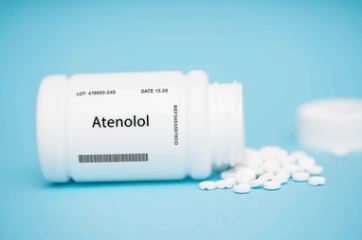Atenolol is a drug used to treat hypertension and angina (chest pain); it is a beta-blocker that affects the heart and circulation of blood through the blood vessels. It also effectively lowers the risk of heart attack, stroke, kidney problems and death in hypertensive patients. The drug works by blocking the action of some natural chemicals in the body, such as epinephrine, which lowers blood pressure, heart rate and strain on the heart.
Dosage for Atenolol
Atenolol is available as an oral tablet in 3 strengths: 25 mg, 50 mg and 100 mg. Your dosage will be based on your age, the condition being treated, how you respond to the first dose, the severity of your condition and your general health or medical history.
The recommended dosage for this drug is 50 mg daily for adults of 18 to 64 years; it is not recommended for people under 18, and the dose can be adjusted if necessary. Older adults (65 years and older) may process drugs slowly and react to side effects differently, so their dosage will be recommended based on age and condition, usually lower doses.
Side Effects of Atenolol
The common side effects of this drug include:
- Tiredness.
- Cold feet and hands.
- Depression.
- Dizziness.
- Constipation.
- Headache.
- Leg pain.
- Decreased sex drive.
- Diarrhea.
- Low blood pressure.
- Shortness of breath.
Atenolol may also cause more severe side effects; if you notice any of these signs, ensure you contact your healthcare provider as soon as possible.
- Slow or uneven heartbeats.
- Swelling of the feet, arms or ankles.
- Unexplained weight gain.
- New or worsening chest pain.
- Lightheadedness.
Precautions
If you have diabetes, this drug may make it more difficult to control your blood sugar; ensure you talk to your doctor before using it. Also, the drug may cause harm to an unborn child and can cause undesirable effects on an infant, so if you are pregnant, planning to get pregnant or breastfeeding, do not use atenolol.
The medication may make you drowsy or dizzy, so do not drive or operate machinery after taking it.
Tell your doctor about your medical history, especially if it is related to any heart or kidney problems. Also, tell your doctor if you are allergic to any of the ingredients of this drug.



